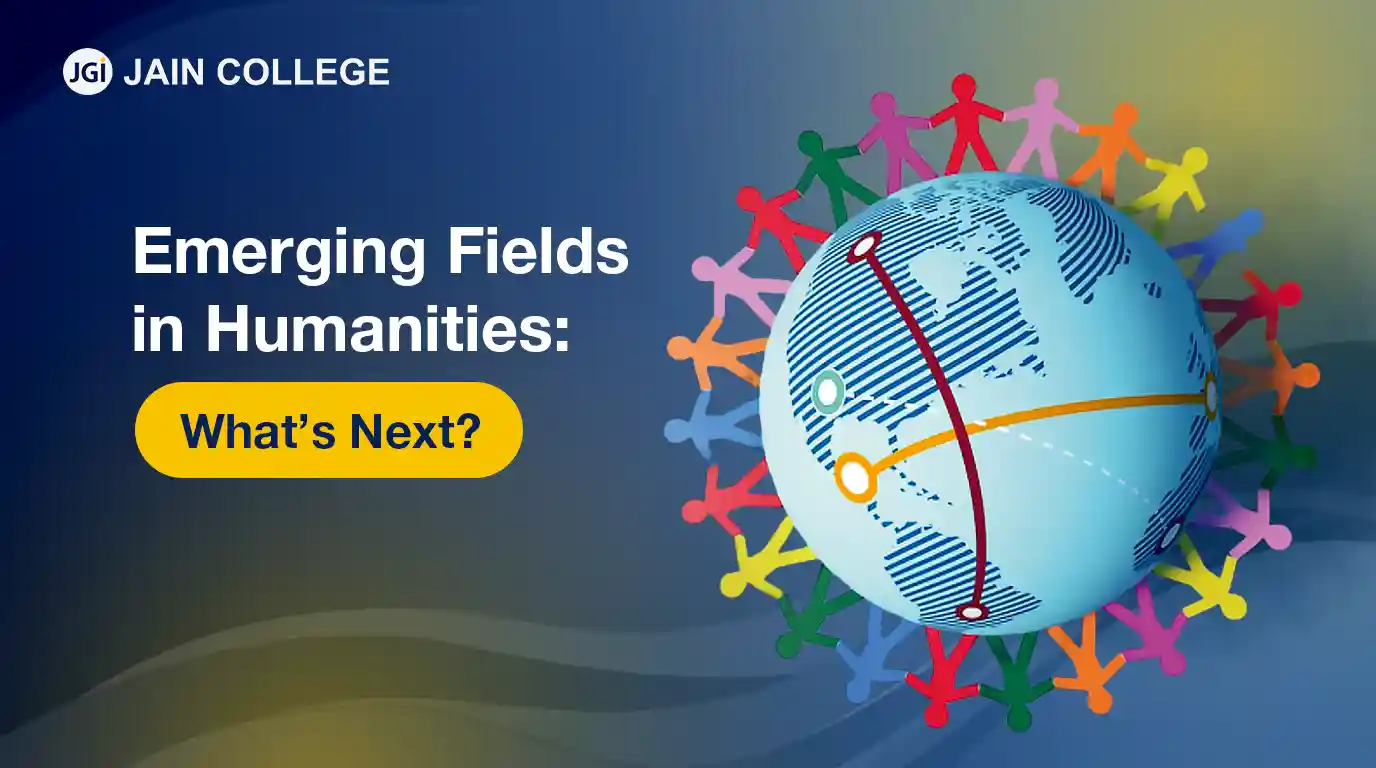
As a student, you might often think of the Humanities as the study of History, Literature, and Philosophy. But in today’s world, the Humanities are evolving, with new and exciting fields emerging. With technology shaping so much of our lives, we are seeing new branches of the Humanities like Digital Humanities, Media Studies, and Cultural Analytics. These fields blend traditional humanistic thinking with modern tools, opening up new ways to understand the human experience.
As we look into the future, it is clear that the Humanities are not just surviving. It is adapting and growing. Thus, making us reevaluate what it means to study people, cultures, and ideas in the digital age.
In this article, we will explore the Humanities and emerging fields in the Humanities.
Keep Reading!
The term "Humanities" might sound like a subject from the past.
Though in reality, the Humanities are all around us. They are about understanding people and how we think, feel, express ourselves, and connect.
Humanities include subjects like Literature, History, Philosophy, Art, and Languages, all of which explore human experiences across time and cultures.
Studying Humanities is not just about reading old books or memorising dates; it is about learning how people have faced challenges, created ideas, and shaped the world we live in.
Humanities help us to think critically, communicate better, and empathise with others.
People, values, and stories truly matter in today's technological world. The Humanities show us that underneath all the machines and data lie people, values, and stories.
As students, you might know that the Humanities are not just about reading books and studying history.
Today, the Humanities are evolving to keep up with a rapidly changing world. New domains are emerging that combine the traditional study of people, cultures, and ideas with modern technology and new ways of thinking.
The Humanities, traditionally centred around Literature, Philosophy, History, and the Arts, have been undergoing significant transformation in response to digital innovation, global interconnectedness, and evolving societal needs.
Several emerging fields are redefining the scope and relevance of the Humanities in the 21st century. These new areas reflect an interdisciplinary approach, drawing from technology, Social Sciences, and even the Natural Sciences.
Digital Humanities merges computing technologies with the study of human culture. It involves the use of digital tools to analyse, preserve, and present Humanities content.
Applications:
This field explores the relationship between humans and the environment through the lens of culture, ethics, history, and literature.
Applications:
Medical Humanities bridges medicine with literature, philosophy, ethics, and the arts to provide a more human-centred approach to healthcare.
Applications:
This interdisciplinary field examines how technology affects culture and vice versa. It critically analyses digital culture, media, and technological ethics.
Applications:
These fields challenge traditional human-centred thinking, exploring the evolving boundaries between humans, machines, animals, and the environment.
Applications:
Global Humanities aims to decolonise knowledge and expand the focus beyond Eurocentric perspectives. It promotes cross-cultural, transnational studies.
Applications:
Using big data and computational methods to study trends and patterns in culture, literature, and media.
Applications:
Thus, the emerging fields in the Humanities reflect a shift from purely text-based inquiry to more collaborative, data-driven, and globally conscious approaches. They demonstrate how the Humanities remain vital in understanding the human experience, especially in a rapidly changing world. These new areas offer exciting opportunities for research, education, and practical application in the 21st century.
In the coming years, the future of the Humanities will be filled with possibilities. As a student, you will recognise that emerging fields in the Humanities will continue to bridge the gap between technology and human understanding. These emerging areas allow you to explore how digital tools can help you solve complex problems, preserve cultural heritage, and connect with global communities.
The humanities are far from static—they are constantly evolving and as you step into the future, you will be part of this exciting journey where tradition meets innovation to shape the world ahead.
Stay tuned with our blogs to learn in detail about the Humanities and its emerging fields.
Join JAIN College for top-notch Science, Commerce, and Arts / Humanities programmes. Secure your path to success today!
Frequently Asked Questions (FAQs)Some exciting new fields of the Humanities include Digital Humanities, where tech and human culture meet; Cultural Analytics, which uses data to study global art and ideas, and Media Studies, which explores how digital media influences society.
These new emerging fields help us understand how technology shapes culture, communication, and human behaviour. They allow us to mix traditional learning with modern tools, opening up new ways to explore the world.
The Humanities help us to think critically about technology, culture, and society. By studying these domains, we are better prepared to navigate and shape a world where tech and Humanity are increasingly intertwined.
Yes! Many of these fields are interdisciplinary, so you can blend them with domains like History, Art, or even Data Science to create a unique path that interests you.

JAIN PU College, a part of the renowned JGI Group, is committed to empowering students with quality education.
Beyond academics, the college ensures its online content reflects the same standard of excellence. Every blog and article is meticulously vetted and proofread by subject matter experts to ensure accuracy, relevance, and clarity. From insightful educational topics to engaging discussions, JAIN PU College's content is crafted to inform, inspire, and add value to its readers, reflecting the institution's commitment to intellectual growth and innovation.
View all Blogs